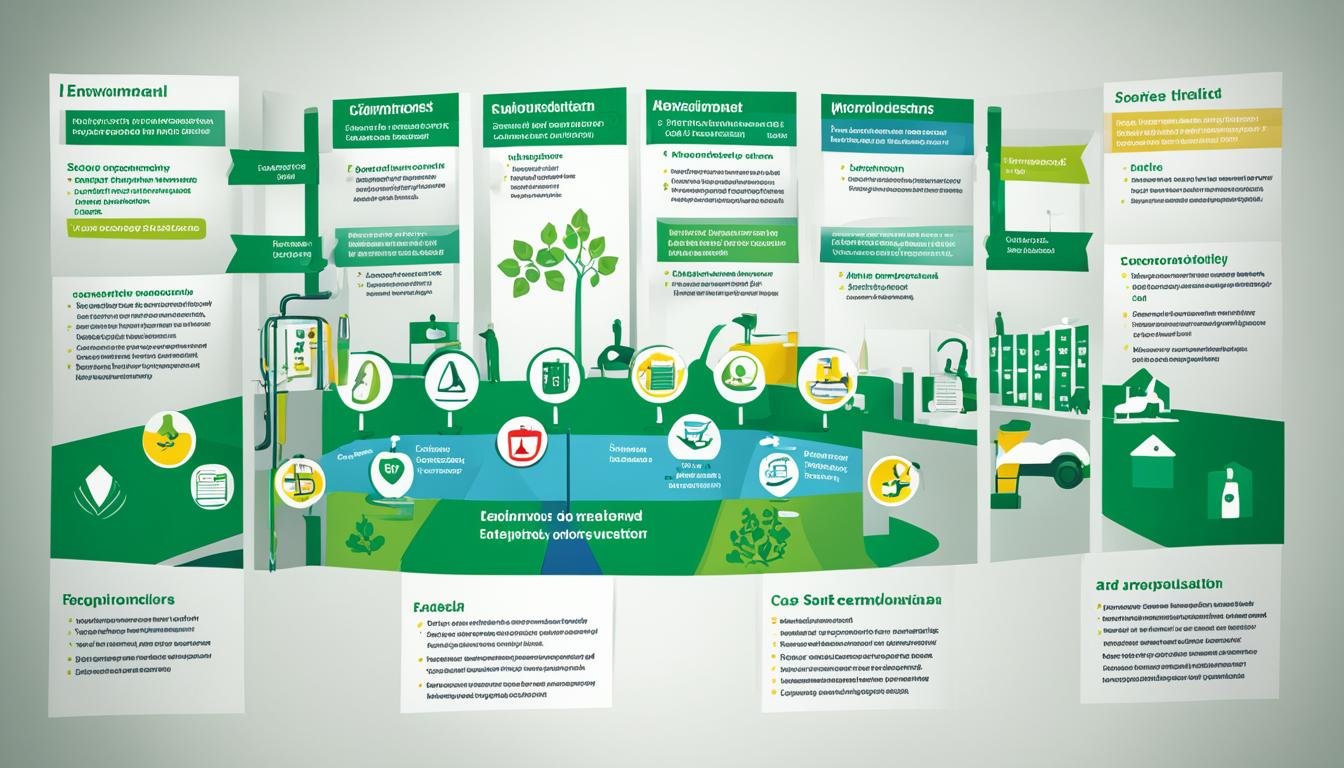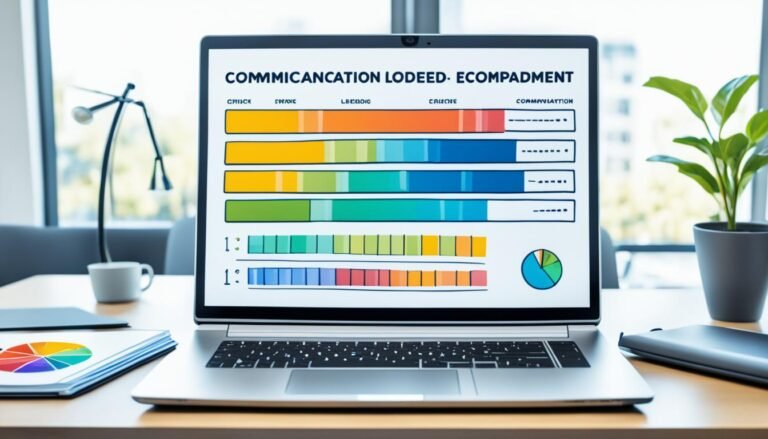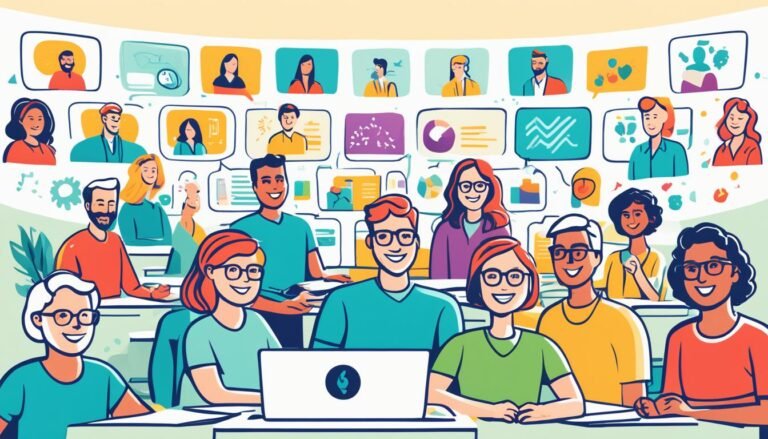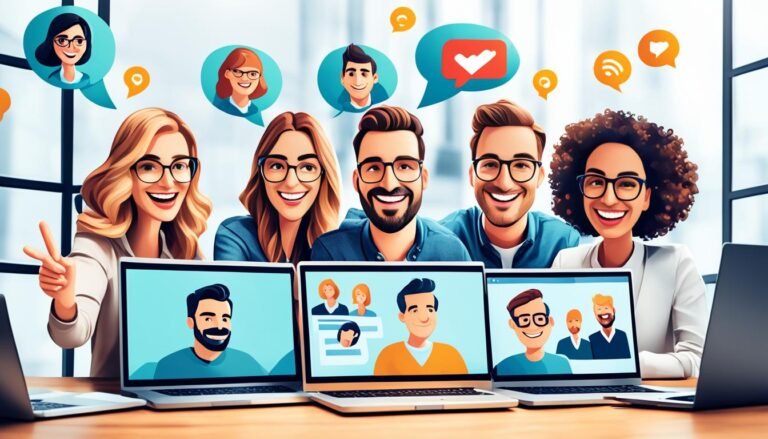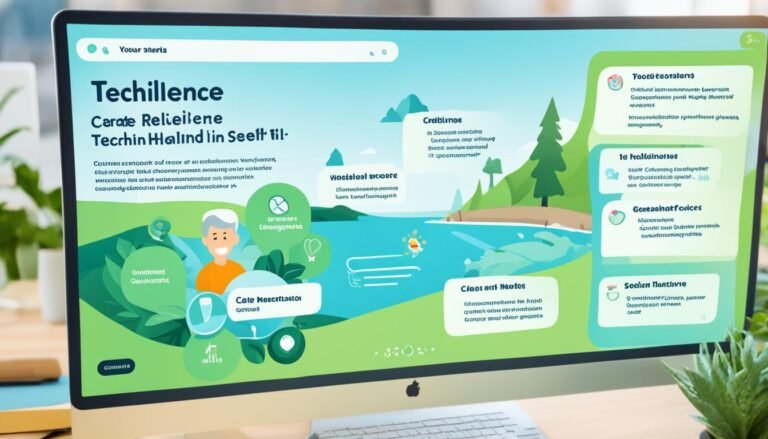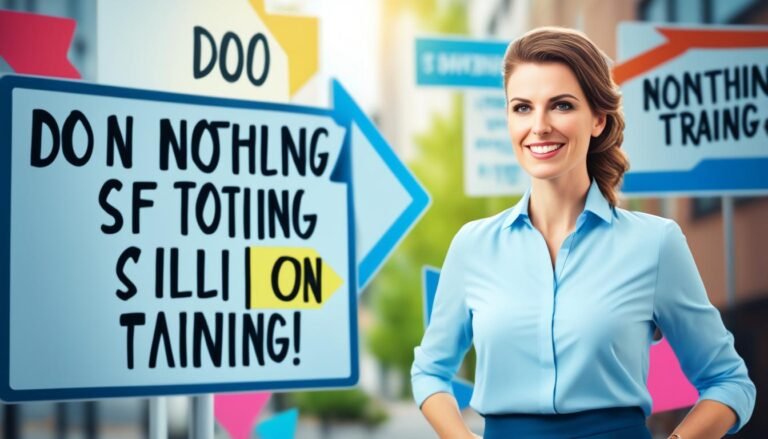Navigating Ireland’s Regulatory Landscape for L&D in MNCs
How well do big companies understand Ireland’s rules for learning and development? What happens if they don’t follow these rules?
Big companies are growing their teams worldwide. This means they must navigate Ireland’s detailed rules better than ever. Ireland is serious about being green and keeping people safe. This article looks at how companies must follow the law, the challenges of working in Ireland’s safety and health field, and why being green matters for business.
Key Takeaways
- Understanding Ireland’s tough safety and health rules is key for big companies.
- Being green is a big part of being responsible and competitive in Ireland.
- Experts in safety are in high demand, showing in their big salaries.
- Matching business plans with Ireland’s rules helps companies do better.
- Talking to local experts, like Caroline at HERO Recruitment Ltd, gives valuable insights.
Overview of Ireland’s Regulatory Landscape for MNCs
Multinational corporations in Ireland face a complex set of rules to follow. They must stick to the guidelines of the Environmental Protection Agency and the Health and Safety Authority. These agencies make sure the environment is protected and workers are safe.
The Role of the Environmental Protection Agency (EPA)
The Environmental Protection Agency (EPA) in Ireland is key to environmental rules. They check if companies follow environmental laws, manage waste, and push for sustainable growth. The EPA uses digital tools and data to help businesses, especially big ones, be green.
This is important as companies aim to meet Ireland’s goals for a green economy and more renewable energy.
The Health and Safety Authority (HSA)
The Health and Safety Authority (HSA) makes sure workers in Ireland are safe and healthy. They set rules for safe workplaces and check if companies follow them. Companies must meet these standards to keep their work safe and promote a safety culture.
Compliance Requirements for Multinationals
For big companies, knowing and following Ireland’s rules is crucial. These rules cover health, safety, and the environment. It’s important to understand Irish labor laws and how agencies like the EPA and HSA work.
Companies also need to keep learning new skills to keep up with changing rules, like those on automation and AI. Starting salaries for EHS Specialists in Ireland are around €30,000 to €40,000 a year. This shows how important it is for companies to invest in staying compliant and developing their staff.
- Entry-level EHS Specialist: €30,000 to €40,000 annually
- Mid-level EHS L&D Specialist: €45,000 to €65,000 annually
- Experienced EHS Managers: €75,000 to €100,000 annually
- Seasoned EHS Directors: €100,000+ annually
In 2021, only 14% of Irish adults were learning or training. This is lower than in Sweden and Finland, where 35% and 31% were. So, big companies need to offer strong training and leadership programs to help fill this gap.
Corporate Compliance and Irish Labor Laws
For multinational corporations (MNCs) in Ireland, knowing about Irish labor laws is key. These laws make sure workers get fair treatment and protect their rights. They help MNCs focus on learning, well-being, managing talent, and keeping the workplace safe.
Key Labor Laws and Their Impact on MNCs
Irish labor laws shape how MNCs work by putting the spotlight on worker rights and corporate responsibility. They cover things like minimum wage, working hours, and job conditions. This ensures everyone gets fair treatment and equal chances.
Following these laws is a must and also a big plus. By sticking to them, MNCs can draw in and keep top talent. This boosts their talent management.
Employment Regulations and Worker Rights
In Ireland, employment laws protect workers by focusing on fair pay, safe jobs, and equal treatment. They also cover things like holiday time, parental leave, and stopping unfair firing.
Following these laws is key to a positive work culture. A place that respects workers naturally offers more learning chances. It makes employees feel important and supported.
The Importance of Health and Well-being in the Workplace
Looking after employee well-being is big in Ireland’s laws. Laws on health and safety make employers work hard to keep workers’ physical and mental health safe.
Supporting employee well-being is key to boosting morale and productivity. A place that cares for mental health, working conditions, and a supportive vibe helps keep employees engaged and doing well.
The following table highlights podcasts that delve deeper into regulatory impacts and compliance strategies:
| Podcast Episode | Duration | Focus |
|---|---|---|
| CIPD Ireland Podcast – Protected disclosures legislation in Ireland | 48 minutes | Legal frameworks and employee protections |
| CIPD Ireland Podcast – Nuances of Budget 2024 for HR | 48 minutes | Tax changes, extended paternity leave, education skills supports |
| CIPD Ireland Podcast – AI and the ability to navigate disruption | Varied | AI’s impact on job roles and innovation |
Strategies for Skills Development and Continuous Learning
Today, skills development and continuous learning are key in the fast-changing work world. They need structured plans to help workers adapt. The OECD Ireland Skills Strategy report shows how vital lifelong learning is. Yet, only 14% of Irish adults are learning, showing the need for more upskilling.
“Learning and Development (L&D) roles have changed a lot since the early 2000s. Now, they’re a big part of companies, big and small, and in the public sector too. Skills development, planning for personal growth, and matching employee skills with business goals are key. This shows how important L&D experts are.”
Programs like Enterprise Ireland’s Spotlight on Skills are crucial. They help spot and fix skills gaps. This boosts learning and growth in a world where tech changes fast.
Working together is key to improving skills. L&D experts need to team up with managers, workers, and top bosses. They must create a plan that encourages learning at all stages of a career.
- Using HR analytics for smart decisions
- Getting feedback from surveys, focus groups, and exit interviews
- Blending thoughtful and instinctive thinking in choices
- Switching from reacting to acting ahead with strategic planning
Organizations and individual learning needs often clash for L&D experts. But, using Paradox theory helps manage these differences. It leads to a balanced way of handling talent and development.
| Notable L&D Career Tracks | Key Features |
|---|---|
| Training L&D Manager | Focuses on designing and delivering effective training programs |
| Strategic L&D Manager | Aligns learning with business goals to help the organization succeed |
| E-Learning L&D Manager | Specializes in online training and digital learning platforms |
| Organizational Development L&D Manager | Improves how well an organization works through people development |
| Global L&D Manager | Manages learning across different regions and cultures |
| Compliance-focused L&D Manager | Makes sure training meets legal and compliance standards |
Encouraging lifelong learning and upskilling is key to keeping employees competitive. By focusing on skills development and ongoing learning, companies can stay ahead. This helps them keep their edge in the global job market.
Localization Strategies for Multinational Training Programs
Multinational companies are now focusing on localization strategies to better engage their diverse Irish workforce. They tailor multinational training programs to fit the unique cultural and legal aspects of Ireland. This means more than just translating; it’s about adapting to local business ways, laws, and norms.
This approach helps companies follow Irish labor laws and corporate policies. It also makes training more relevant and useful, improving talent development and keeping employees.
To succeed with localization, companies must understand the varied needs of their global workers. As businesses grow, they’re finding new ways to train their teams worldwide. Here’s how they’re making changes:
- Skillset Optimization: Automated assessments and interactive simulations tailor learning to each person. This helps with cultural fit, making training more effective.
- AI Integration: AI Avatars help learners navigate tough topics like IoT with personalized learning paths. This helps a global team share a common message and training standards.
- Advanced Tools: Tools like text-to-3D conversion and IntelliScan, expected by 2024, offer new ways to engage employees.
Improving multinational training programs also means using technology and local knowledge. For example, eLearning localization helps reach more people and tap into the global market.
| Feature | Implementation | Impact |
|---|---|---|
| AI Avatar | Guides learners through complex topics | Personalized learning experience |
| Interactive Simulations | Real-life incident and skill simulation scenarios | Increases engagement and practical knowledge |
| Automated Assessments | Various quiz formats used | Customizable and scalable assessments |
By using localization strategies and advanced tools in multinational training programs, companies can develop their talent better. Focusing on cultural fit and skill improvement prepares their workforce for global challenges. This boosts engagement and productivity.
How ready are big companies with operations in Ireland to match their Learning and Development (L&D) efforts with Ireland’s tough rules?
In today’s fast-changing global market, big companies in Ireland must deal with many rules. These rules make sure they act ethically, protect the environment, and look after their workers. Ireland is a leader in Europe for job creation and innovation for the third year running. But, these companies must still follow strict and changing rules. This makes a big question: how do companies make sure their L&D plans meet these rules and help them grow in a sustainable way?
Key Takeaways
- Navigating Ireland’s regulatory environment requires a deep understanding of its dynamic standards for environmental protection and worker safety.
- Comprehensive compliance with Irish labor laws is essential for MNCs to ensure ethical business practices.
- Integrating regulatory compliance into L&D programs fosters organizational sustainability and the well-being of employees.
- Ireland’s reputation for innovation and employment impacts necessitates robust strategies for skills development and continuous learning.
- Localization of training programs is critical for MNCs to effectively meet both local regulatory requirements and global corporate standards.
Overview of Ireland’s Regulatory Landscape for MNCs
For multinational corporations (MNCs) looking to grow in Ireland, it’s key to understand the rules. Ireland makes sure companies focus on the environment and keeping workers safe. This approach helps businesses follow the law and work better.
The Role of the Environmental Protection Agency (EPA)
The Environmental Protection Agency (EPA) is very important in Ireland. It makes sure the air, water, and soil are safe for business. Companies like those in the medical device industry, expected to hit US$23.96 billion by 2024, must follow EPA rules to protect nature.
The Health and Safety Authority (HSA)
The Health and Safety Authority (HSA) keeps workplaces safe in Ireland. It sets rules for health and safety, helping companies like those in treasury and medical devices. With over 42,000 people working in 450 companies in medical devices, the HSA’s rules are key to keeping workers safe.
Compliance Requirements for Multinationals
MNCs in Ireland must follow many rules, from protecting the environment to keeping workers safe. Companies like Baxter Healthcare Ireland and Abbott Ireland need to follow these rules to keep running smoothly. Baxter and Abbott, with thousands of employees, must meet HSA standards for safety and follow the law. They also need to deal with the skills gap in treasury and adapt to digital changes in finance. Being compliant means more than just following the law; it’s about creating a safe and sustainable work culture.
| Sector | 2024 Market Projection (US$ Billion) | Employment (2024) | CAGR (2024-2028) |
|---|---|---|---|
| Medical Device & Products | 23.96 | 43.7K | 3.38% |
| Total Market Output | 75.38 | N/A | N/A |
| Corporate Treasury | N/A | N/A | 1.25% |
Corporate Compliance and Irish Labor Laws
For multinational corporations (MNCs) in Ireland, understanding labor laws is key. These laws ensure companies follow the law and create a positive work environment.
Key Labor Laws and Their Impact on MNCs
Irish labor laws cover many areas. They deal with things like employment contracts, minimum wage, and working hours. MNCs need to keep up with these laws to avoid legal trouble and keep a fair workplace.
Employment Regulations and Worker Rights
Ireland’s laws protect workers’ rights. They offer protection against unfair dismissal and ensure equal pay. The Protected Disclosures Act lets workers report workplace issues safely. These laws create a safe and fair workplace.
| Podcast Episode | Duration |
|---|---|
| Financial Wellbeing | 25:39 |
| Pay and Employment Practices Survey 2022 | 27:03 |
| Protected Disclosures Legislation in Ireland | 48:57 |
| Annual Conference 2023 | 31:34 |
| Equality, Diversity, and Inclusion in the Workplace | 34:21 |
| Building a Work Culture for Women’s Careers | 34:21 |
| Navigating AI and Disruption | 30:52 |
| Discovering the Value of CIPD Membership | 30:43 |
The Importance of Health and Well-being in the Workplace
Health and well-being are crucial for a productive team. Ireland’s laws stress the need for a healthy workplace. Employers must have policies for mental and physical health. Things like health checks, ergonomic desks, and mental health support are key.
Strategies for Skills Development and Continuous Learning
The role of learning and development (L&D) has grown in importance since the early 2000s. It’s now key in big companies, small businesses, and government agencies. This change shows how vital training and skills development are. It’s about planning for personal growth and making sure employees fit with the company’s goals.
Understanding L&D is complex. Paradox theory helps by showing how to handle different challenges. It talks about finding a balance between being efficient and flexible. It also looks at how individual and group needs interact.
Organizations face many challenges in L&D. They need to balance keeping things stable with changing and growing. They also have to meet the needs of different people. This means L&D experts must be flexible and keep learning programs in line with company goals.
Using data to make decisions is key. HR analytics help with hiring, pay, and managing performance. This approach encourages a culture of always getting better. Feedback from employees helps make choices that meet their needs.
Working together helps avoid biases and makes sure plans work well. It also supports a culture that values learning. Thinking about money is important too. HR decisions affect pay and benefits. Planning for risks helps prepare for challenges and have backup plans.
Balancing tensions within the L&D role is essential for optimizing outcomes.
The job of L&D Manager offers big chances for growth, scoring 8 out of 10. Keeping up with learning trends is crucial, scoring 9 out of 10. The high demand for L&D Managers in different fields shows how competitive this job is.
| Aspect | Score (out of 10) |
|---|---|
| Opportunities for Advancement | 8 |
| Skill Development | 9 |
| Demand Across Industries | 8 |
| Job Stability | 7 |
| Networking Opportunities | 9 |
| Role Flexibility | 8 |
| Salary and Benefits Progression | 8 |
| Work-Life Balance | 7 |
L&D roles are crucial for a company’s success. Focusing on skill development and ongoing learning boosts individual and team growth. It also helps align with the company’s strategy.
Localization Strategies for Multinational Training Programs
Companies are now focusing on making their training programs fit different cultures and languages as they grow globally. With 15% of people worldwide facing some kind of disability, making training accessible is crucial. My Learning Cloud and Elai.io are at the forefront with eLearning solutions for diverse learning needs.
One way to improve training is by using eLearning that fits local cultures and languages. Global eTraining’s Revizto 5 – A Technical Introduction shows how custom content can make learning better. North America is also working hard to build a skilled, inclusive workforce, showing the importance of tailored training.
Using new technologies is another key strategy. Novella Learning and Elai.io use generative AI to make content that meets local needs. Events like the World of Learning Summit and S&A Academy provide updates on the latest in training localization. By using these new methods, companies can make their training more effective and reach more people worldwide.
Source Links
- Inside Ireland’s Top Medical Device Companies: What job and growth opportunities do they offer? – HERO Recruitment
- Corporate Treasury Q3 2024 Talent Monitor… by Barden – Barden
- Learning And Development Manager Career Path
- Navigating Ireland’s Thriving Environmental Health and Safety Industry Amidst Sustainability Surge – HERO Recruitment
- Skills Gap in Ireland: Urgent Need for Lifelong Learning and Upskilling – IMI
- CIPD | Ireland Podcasts
- Top legal tech trends for businesses to watch in 2024
- Here’s how you can improve your decision-making as an HR leader.
- Global – eLearning Learning
- EON TVET/CTE: Advancing Education with VR & AI
- Exhibitors – World of Learning

